Avoid the New Business Tax Trap
Avoid the New Business Tax Trap
Whether we like it or not, a lot of our money goes on tax. With up to 33% of our profits going to income tax alone, tax has a major impact on our business’s cash flow. But when we start a new business, it can be up to two years before we need pay a cent, making it too easy to put our head in the sand.
It does catch up with us. Facing two years of tax, payable within a month, can be enough to knock a fledgling business over. This is one bill that a new business owner must have a plan for.
The start-up
Take Sally, an Interior Design Consultant. She starts some private work in April 2016 hoping it might lead to a fulltime business. After a couple of successful projects, referrals start coming in from a busy boutique architectural firm. By January 2017 she is flat out. Money is coming in but also pouring out.
The busier she gets, the more she spends to save time – a house cleaner, child-care and eating out several times a week.
Sally also worries that her personal image isn’t compatible with her profession. Rolling up to a new prospective client’s home in her trusty 14-year-old station wagon wearing an old sweatshirt isn’t inspiring confidence in her as a style expert. So, she starts regularly upgrading her wardrobe. She also trades the station wagon for a respectable four-year-old SUV.
Sally’s second year in business gets even busier. She knows something must give and plans to hire some administration help, if only she had time to advertise and interview. Other than visiting an accountant when she first started up, who tried to explain her tax requirements and registered her for GST, she has done everything herself.
By February 2019, Sally knows she needs to sort her accounts out. She puts aside a day, collates her financial records and visits the accountant who helped her at the start. It is a relief to finally hand a job over, but she isn’t prepared for what is coming.
On the 20th March, her accountant emails her financial statements and a tax return showing a $75,000 profit in the tax year ended 31 March 2017. She finds it hard to believe as there sure isn’t $75,000 in her bank.
He also tells Sally she has $15,670 income tax payable for that year, due in 18 days. Right now, Sally isn’t feeling too good. She knew she should have been putting money aside for tax, but always needed things for the business.
To top it off, the “Provisional Tax” that the accountant had warned Sally about at that initial meeting has also reared its ugly head. Sally has $16,454 of provisional tax, for the year to 31 March 2018, due by 7 May.
That is over $32,000 of tax due in the next seven weeks.
How did it get to this stage?
By 7 May 2019, when the $16,454 provisional tax is due, Sally has been working for just over two years. Her tax payments on 7 April and 7 May 2018 are the tax liabilities on two years’ profits.
When starting a business, it is easy to ignore a bill that you won’t see for up to two years, especially when there are more pressing, and more interesting, things to focus on. But as soon as you are making money your debt to IRD is accumulating.
How to plan for tax payments
Every business should have a financial plan, including a cash flow forecast, to plan for major financial commitments including purchasing equipment and paying tax. The plan will show you what percentage of your income received needs to be put aside for commitments such as income tax, GST and ACC levies. Once you have these commitments clearly scheduled into your plan, it is easy to find the discipline to put the money aside. Not so when they are a big unknown on the horizon.
It is well worth a modest investment at the start of your business journey to get professional help with your financial plan and take control of your business commitments before they take control of you.
Contact us with your business questions.
